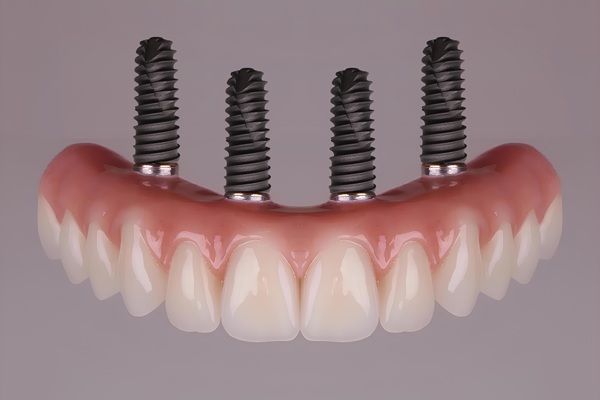 Dental crowns restore teeth compromised by damage or decay. They can repair teeth's appearance and function and last a long time. Though dental crowns can be highly beneficial for those who take good care of their teeth, improper dental care can damage these restorations, impact their effectiveness, and lead to decay and other oral health issues. The following are some key pieces of advice for those wanting to get the most out of their dental crowns.
Dental crowns restore teeth compromised by damage or decay. They can repair teeth's appearance and function and last a long time. Though dental crowns can be highly beneficial for those who take good care of their teeth, improper dental care can damage these restorations, impact their effectiveness, and lead to decay and other oral health issues. The following are some key pieces of advice for those wanting to get the most out of their dental crowns.
Benefits of dental crowns
Dental crowns are durable and can last years with proper care. The typical porcelain crown can last 10 to 15 years, and some can last up to 30 years with ideal care. In addition to their longevity and versatility, dental crowns also offer the following benefits:
- Aesthetically pleasing
- Restored chewing function
- Strengthen weakened teeth
- Reduced dental pain
In addition, dental crowns can provide added protection from future tooth decay.
Dental hygiene with dental crowns
To enjoy the benefits of dental crowns, patients need to take proper care of their restorations and the rest of their smiles. Bad oral health habits can damage crowns and contribute to tooth decay in and around them.
Caring for temporary crowns
Good dental crown maintenance begins during the two-week waiting period for the permanent crown. Patients will usually receive a temporary crown until their permanent one is ready. It will not be as strong as the permanent one, so it is important to chew on the side of the mouth opposite the crown and be very gentle with cleaning around it. In addition, avoid hard or sticky foods.
After getting a permanent crown
Immediately after the permanent crown placement, patients will want to continue to follow much of the advice above. Also, for the first few days, rinse the mouth with salt water to help with healing and inflammation reduction. Avoid eating on that side of the mouth for a few days after placement. It is unlikely, but call the dentist immediately if the permanent crown becomes loose.
Caring for a permanent crown
The permanent crown will be sturdier than the temporary crown. However, patients should still avoid chewing hard and sticky foods, especially on the side of the mouth with the crown. In addition, it is important to cease bad oral habits such as grinding teeth and chewing pens. These can wear down crowns and make them vulnerable to breaking. Tooth grinding is especially distressing because it often happens at night when people are unaware they are doing it. Therefore, getting a custom-fit nightguard to wear while sleeping is advised not only to protect the other teeth but also to help maintain the integrity of the crown.
Along with maintaining a strict oral hygiene regimen, there are a few considerations when cleaning around a dental crown. Patients should continue brushing twice daily and floss at least once daily. An antiseptic mouthwash is also recommended. It is important to clean carefully and thoroughly around the dental crown. This cleaning can be easier using a water flosser, interdental brushes, and other special tools. Careful cleaning will reduce the likelihood of plaque collecting around or under the crown.
Ensuring your dental crown lasts
With proper care, dental crowns can protect your teeth for decades. By investing in your oral health, you can take good care of your smile and get the most out of your dental work. If you have any further questions about dental crowns, call our team today.
Request an appointment or call South Florida Dental Arts at 305-230-4041 for an appointment in our Miami office.
Recent Posts
Dental crowns are restorations that can address a range of dental issues, from severely damaged teeth to protecting a tooth after a root canal. They help preserve oral health and enhance a smile's appearance. In addition to being versatile, they are available in different materials, which can be helpful for individuals who want options.Dental crowns…
Dental crowns are caps that cover and replace natural tooth structures to restore their shape, function, and appearance. They are a popular restorative treatment that can address various dental issues. By investing in dental crowns, you are not only restoring the look of your smile, but you are also safeguarding the future of your oral…
Your dentist can help determine if you need dental crowns. There are many reasons for getting these restorations. The main goal is always to restore the tooth and enhance its functions. Here are the signs you may need dental crowns soon.Losing at least one tooth can cause more dental problems. It can lead to dental…


